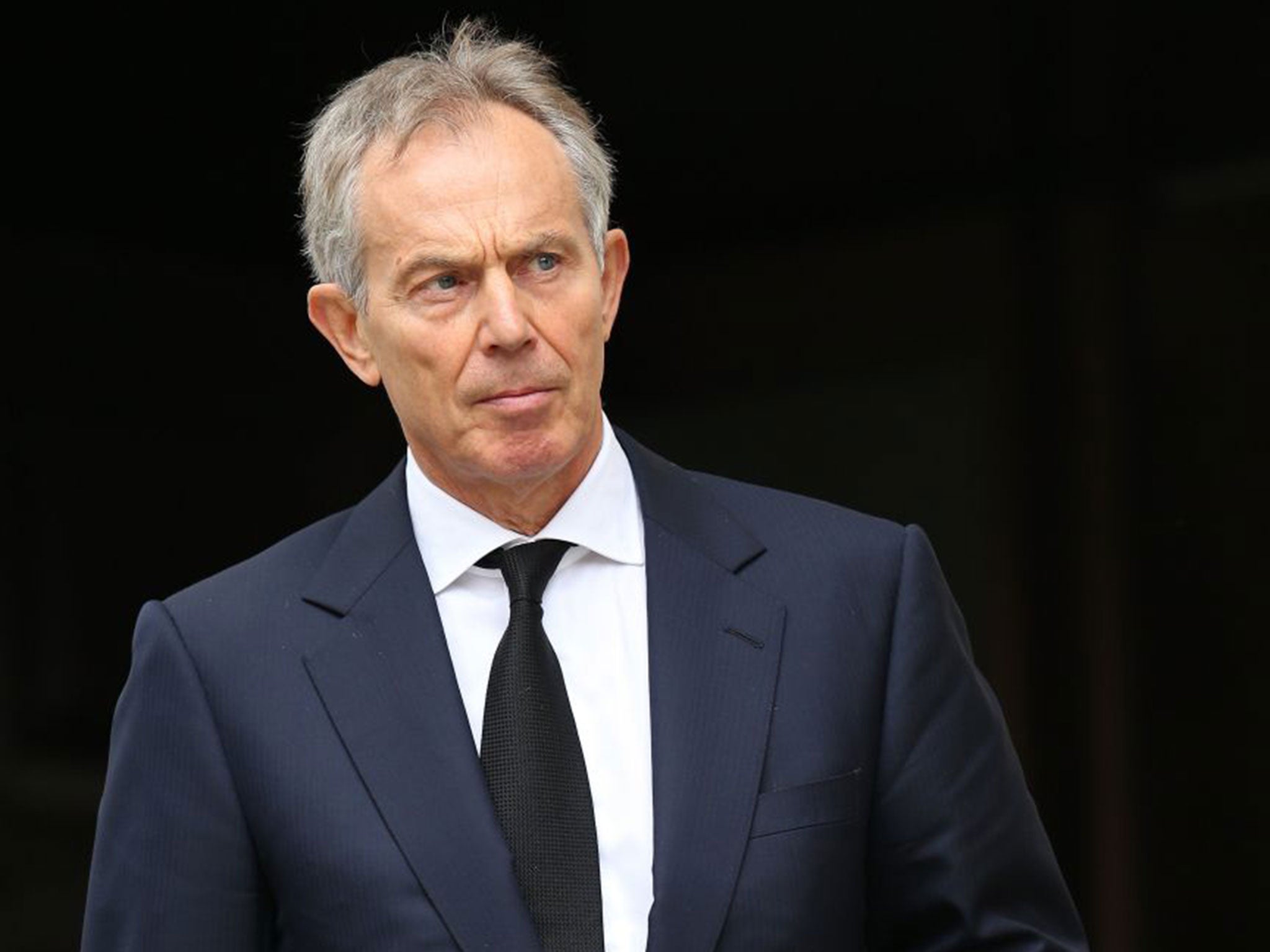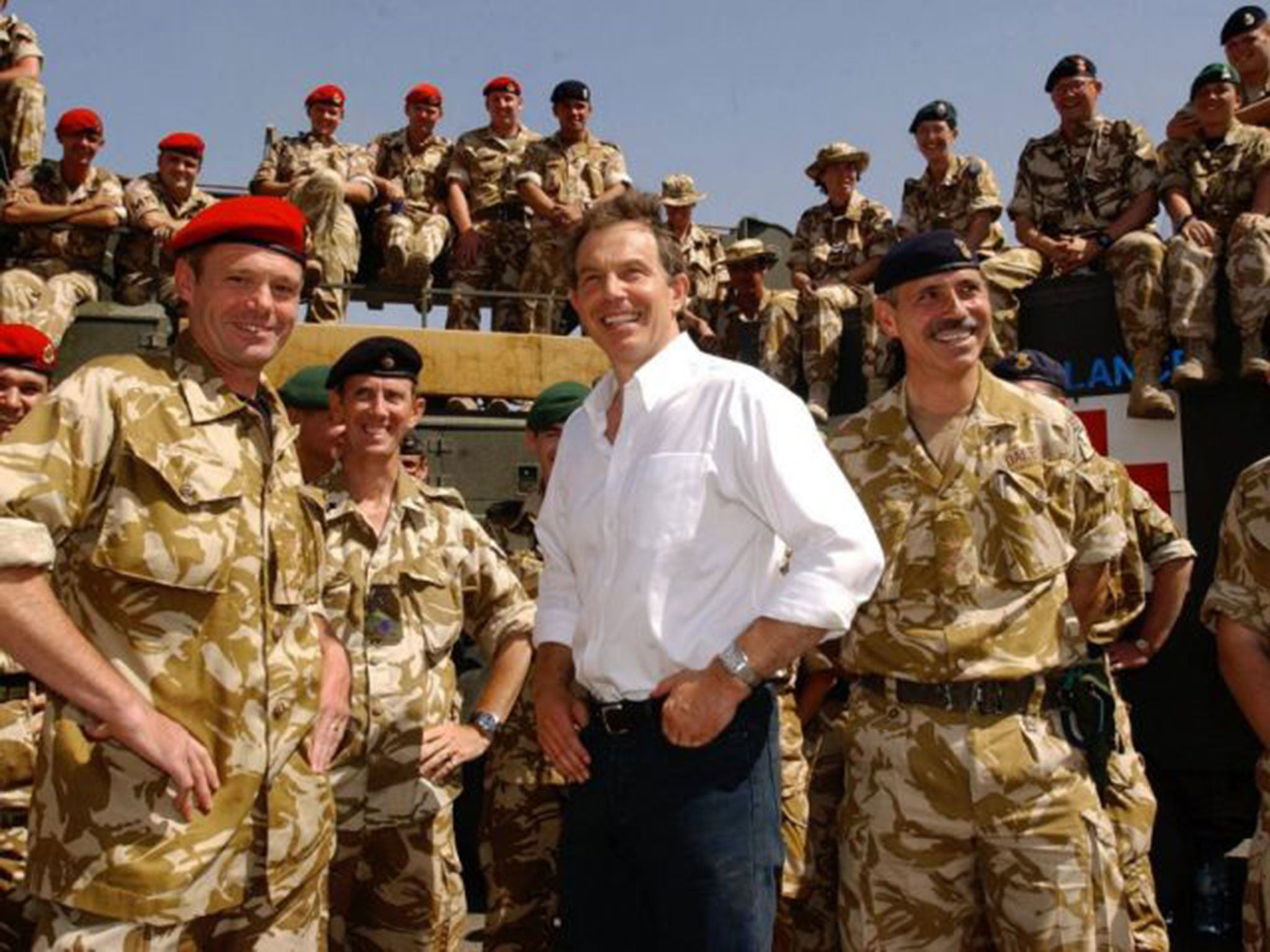Tony Blair Iraq comments: Senior Labour figures distance themselves from former PM after he refuses to accept blame for new crisis
Sources close to Ed Miliband refused to endorse Mr Blair’s analysis

Your support helps us to tell the story
From reproductive rights to climate change to Big Tech, The Independent is on the ground when the story is developing. Whether it's investigating the financials of Elon Musk's pro-Trump PAC or producing our latest documentary, 'The A Word', which shines a light on the American women fighting for reproductive rights, we know how important it is to parse out the facts from the messaging.
At such a critical moment in US history, we need reporters on the ground. Your donation allows us to keep sending journalists to speak to both sides of the story.
The Independent is trusted by Americans across the entire political spectrum. And unlike many other quality news outlets, we choose not to lock Americans out of our reporting and analysis with paywalls. We believe quality journalism should be available to everyone, paid for by those who can afford it.
Your support makes all the difference.Senior Labour figures rapidly distanced themselves from Tony Blair after he supported airstrikes on Iraq and Syria – and refused to accept that he should accept any of the blame for the crisis engulfing the region.
He defended his Government’s backing for the US-led invasion of Iraq, insisting it had been right to oust Saddam Hussein and urging military intervention to halt the advance of extremist Isis forces across the north of the country.
The former Prime Minister’s comments, in a blogpost on his website and a series of television interviews, opened fresh wounds within the party over the 11-year-old Iraq war.
Sources close to Ed Miliband refused to endorse Mr Blair’s analysis. One told the Independent: “What matters now is making the judgements rather than seeking to make points about what happened in the past.”

The shadow Foreign Secretary, Douglas Alexander, echoed the Coalition Government’s view that military action is not contemplated. He said: “The truth is that it is the Iraqis themselves who hold the key to resolving this crisis.”
Interviewed on BBC1’s Andrew Marr Show, Mr Blair made clear he was not advocating the deployment of ground troops, but said western nations should “actively try and shape this situation with our allies in the region”.
It would be wrong to believe that “if we just wash our hands of it and walk away then the problems will be solved”, he said.
Mr Blair, now a Middle East peace envoy, said the West should consider a range of options, including air strikes and the use of remote-controlled drones as happened in Libya.
In the article on his website, the former Labour leader insisted the latest bloodshed in Iraq was not linked to the invasion.
He blamed the re-emergence of extremist fighters on the weakness and sectarianism of the Iraqi government, as well as the failure to intervene in neighbouring Syria, which has been embroiled in civil war for more than three years.
His comments were condemned by his former deputy, Lord Prescott, who spelt out his opposition to Britain’s involvement in Iraq in 2003 and accused him of wanting to launch a “crusade” in the region.

Lord Prescott told Sky News: “I said to him at the time, your great danger, when you want to go and do these regime changes, you’re back to what Bush called a crusade…Put on a white sheet and a red cross, and we’re back to the crusades. It’s all about religion – in these countries it’s gone on for a thousand years.”
He dismissed the use of drones as “not a way for Britain to go in the name of open society”, adding: “Hardly democratic either. So I don't agree with Tony as I didn’t then.”
Clare Short, who resigned from the Blair Cabinet over Iraq, said: “More bombing will not solve it, it will just exacerbate it.”
She called him a “complete American neocon” who had been “absolutely consistently wrong, wrong, wrong" on the issue.
Sir Christopher Meyer, Britain’s ambassador to the US from 1997 to 2003, said the handling of the campaign to remove Saddam was “perhaps the most significant reason” for the sectarian violence now convulsing Iraq.
“We are reaping what we sowed in 2003. This is not hindsight. We knew in the run-up to war that the overthrow of Saddam Hussein would seriously destabilise Iraq after 24 years of his iron rule,” he wrote in the Mail on Sunday.
The former Liberal Democrat leader Lord Ashdown said: “I’m having a bit of a difficulty getting my mind round the idea that a problem that has been caused or made worse by killing many, many Arab Muslims in the Middle East is going to be made better by killing more with western weapons.”
Join our commenting forum
Join thought-provoking conversations, follow other Independent readers and see their replies
Comments